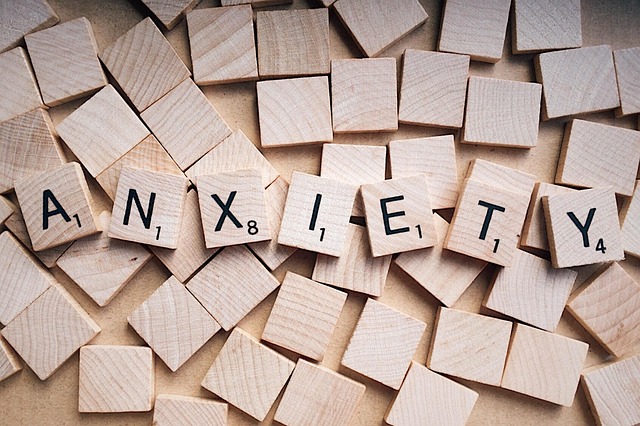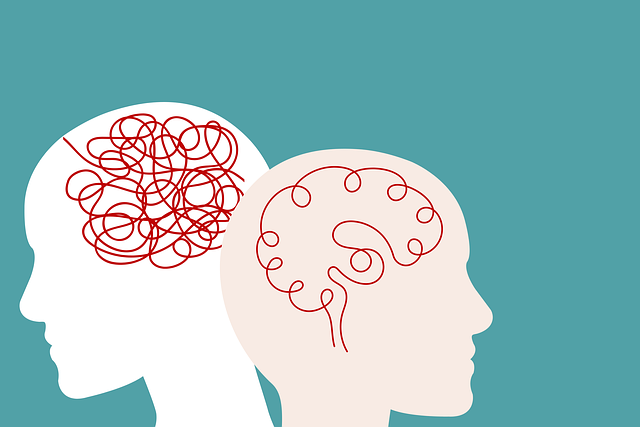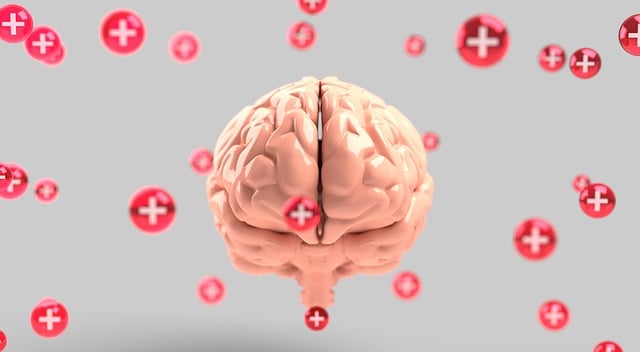Mental wellness coaching, enhanced by Eye Movement Desensitization and Reprocessing (EMDR) therapy, offers a holistic approach to healing trauma and improving mental health. EMDR-certified therapists use bilateral stimulation to help clients process traumatic memories and reduce anxiety/depression symptoms. This integration benefits individuals seeking support for emotional well-being, promoting resilience and sustainable coping strategies. However, it requires ethical boundaries, clear client communication, and thorough training. Holistic coaching sessions, including self-awareness exercises, facilitate personal growth by addressing symptoms and underlying causes, fostering lasting improvements in mental wellness.
Mental wellness coaching programs are gaining prominence as effective tools for promoting emotional health. This article explores the development of such programs, focusing on the integration of Eye Movement Desensitization and Reprocessing (EMDR) therapy—a powerful technique for trauma recovery. We’ll delve into defining the role of a coach, understanding EMDR, its benefits and challenges in coaching, designing supportive sessions, and the importance of certification for EMDR-certified therapists.
- Understanding Mental Wellness Coaching: Defining the Role of a Coach
- EMDR Therapy: A Powerful Technique for Trauma Recovery
- Integrating EMDR into Coaching Programs: Benefits and Challenges
- Designing Effective Coaching Sessions for Mental Health Support
- Certification and Training: Preparing Coaches for EMDR Integration
Understanding Mental Wellness Coaching: Defining the Role of a Coach

Mental wellness coaching is a supportive process that empowers individuals to improve their mental health and overall well-being. A coach, in this context, plays a unique role, distinct from traditional therapists or counselors. Instead of providing direct therapy, coaches offer guidance and strategies to help clients develop coping skills and enhance resilience. They work collaboratively with individuals to set achievable goals, navigate challenges, and cultivate positive mindset shifts.
For those seeking specialized support, EMDR (Eye Movement Desensitization and Reprocessing) certified coaches offer an evidence-based approach, particularly beneficial for processing traumatic memories and reducing symptoms of anxiety and depression. This therapy focuses on reprocessing distressing memories, helping individuals to reframe negative experiences and gain a sense of control over their mental wellness. By combining coaching techniques with EMDR, professionals can facilitate significant personal growth, enabling clients to manage their mental health effectively while preventing burnout and promoting sustainable coping strategies.
EMDR Therapy: A Powerful Technique for Trauma Recovery

Eye Movement Desensitization and Reprocessing (EMDR) Therapy has emerged as a powerful technique in the field of mental wellness coaching, offering profound benefits for individuals who have experienced trauma. This innovative approach goes beyond traditional talk therapy by utilizing bilateral stimulation, such as side-to-side eye movements or tactile taps, to help clients process and resolve distressing memories. By engaging the brain’s natural healing mechanisms, EMDR allows individuals to overcome barriers related to mental illness stigma reduction efforts and gain a renewed sense of empowerment.
EMDR is particularly effective in helping people who have suffered from complex trauma, as it facilitates the reprocessing of traumatic memories, reducing their intensity and associated distress. This therapy not only aids in burnout prevention strategies for healthcare providers but also empowers individuals to build resilience and boost confidence in managing their mental health. Through EMDR, clients can learn to desensitize themselves to traumatic events, gain a new perspective, and develop adaptive coping mechanisms, leading to improved overall well-being.
Integrating EMDR into Coaching Programs: Benefits and Challenges

Integrating Eye Movement Desensitization and Reprocessing (EMDR) into mental wellness coaching programs offers a powerful approach to healing and personal growth. EMDR therapy, recognized as an effective treatment for trauma and anxiety disorders, can enhance traditional coaching methods by providing clients with tools to process traumatic memories and negative beliefs. This integration benefits individuals seeking support for their emotional well-being.
Certified EMDR therapists bring specialized skills to coaching, enabling participants to explore and resolve deep-seated issues efficiently. By combining EMDR’s eye movement patterns with communication strategies and conflict resolution techniques, coaches can facilitate profound inner strength development. While this approach presents numerous advantages, it also comes with challenges. Therapists must ensure ethical boundaries are respected and effectively communicate the nature of EMDR to clients. Additionally, training and supervision are crucial to mastering this technique, ensuring its safe and effective implementation within coaching programs.
Designing Effective Coaching Sessions for Mental Health Support

Effective coaching sessions for mental health support should be designed with a holistic approach, addressing both symptoms and underlying causes. A well-structured session incorporates self-awareness exercises to help individuals gain clarity about their emotions and thought patterns. By fostering emotional intelligence, coaches can guide clients in navigating complex feelings and developing coping mechanisms tailored to their unique experiences.
For instance, incorporating techniques like EMDR (Eye Movement Desensitization and Reprocessing) certified therapy can be immensely beneficial for processing traumatic memories and reducing symptoms of depression or anxiety. These sessions should create a safe, non-judgmental space where clients feel empowered to explore their mental landscapes. Through active listening, reflective questioning, and practical strategies, coaches facilitate personal growth and resilience, ultimately supporting individuals in achieving lasting improvements in their mental wellness.
Certification and Training: Preparing Coaches for EMDR Integration

The development of mental wellness coaching programs heavily relies on equipping coaches with the necessary skills and knowledge to integrate innovative therapeutic techniques. One such powerful approach gaining momentum in the field is Eye Movement Desensitization and Reprocessing (EMDR). Certification and training in EMDR prepares coaches to deliver effective therapy for EMDR, enhancing their capability to support individuals in navigating emotional healing processes.
This specialized training delves into crisis intervention guidance, teaching coaches how to facilitate a safe and supportive environment for clients experiencing trauma or distress. By embracing Mind Over Matter principles, certified therapists can empower clients to overcome psychological barriers and cultivate resilience. Such certification ensures that coaches are well-equipped to handle complex emotional scenarios, making them valuable assets in promoting mental wellness and overall well-being.
Mental wellness coaching programs, enriched with EMDR therapy techniques, offer a promising approach to trauma recovery. By integrating this powerful tool, coaches can provide effective support for individuals seeking mental health improvement. With proper certification and training, professionals can master the art of combining coaching with EMDR, creating tailored sessions that promote healing and well-being. This evolving field ensures access to specialized care, empowering folks on their journey towards a brighter, more resilient mindset.














